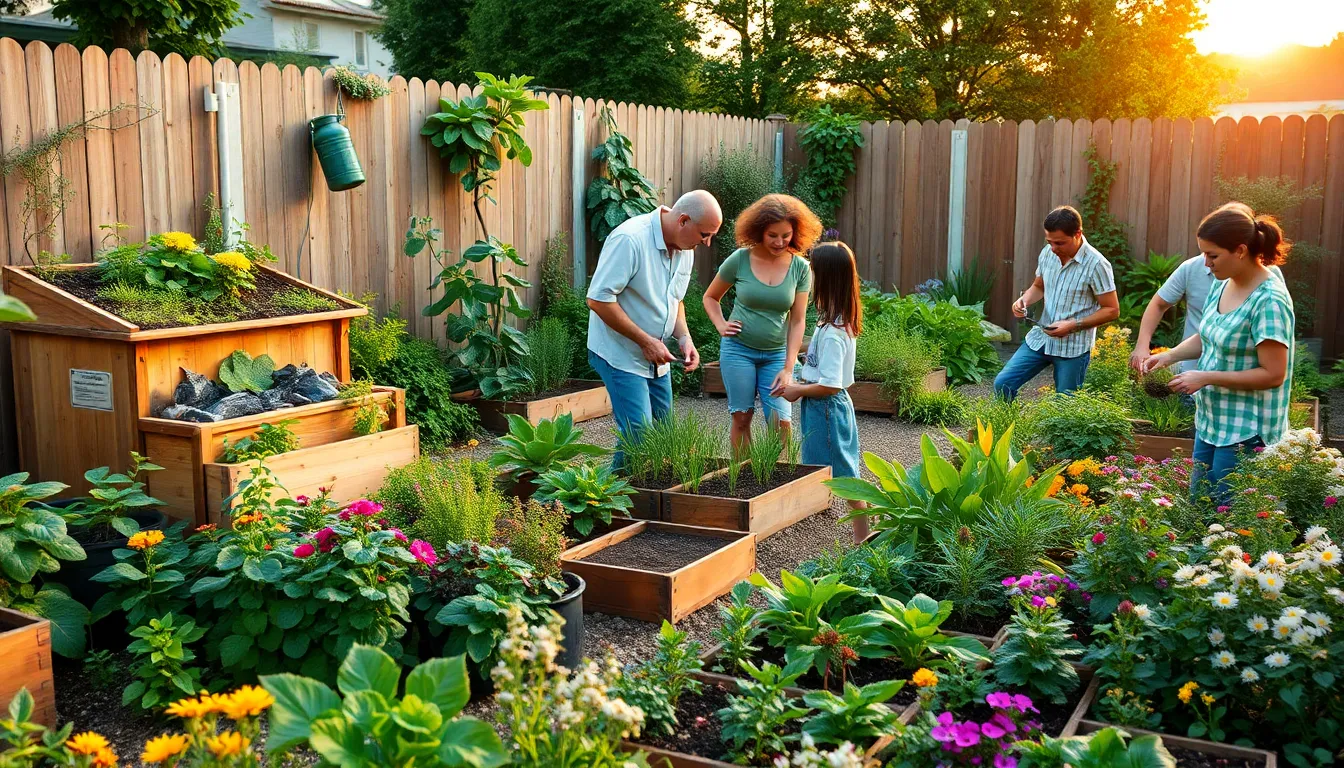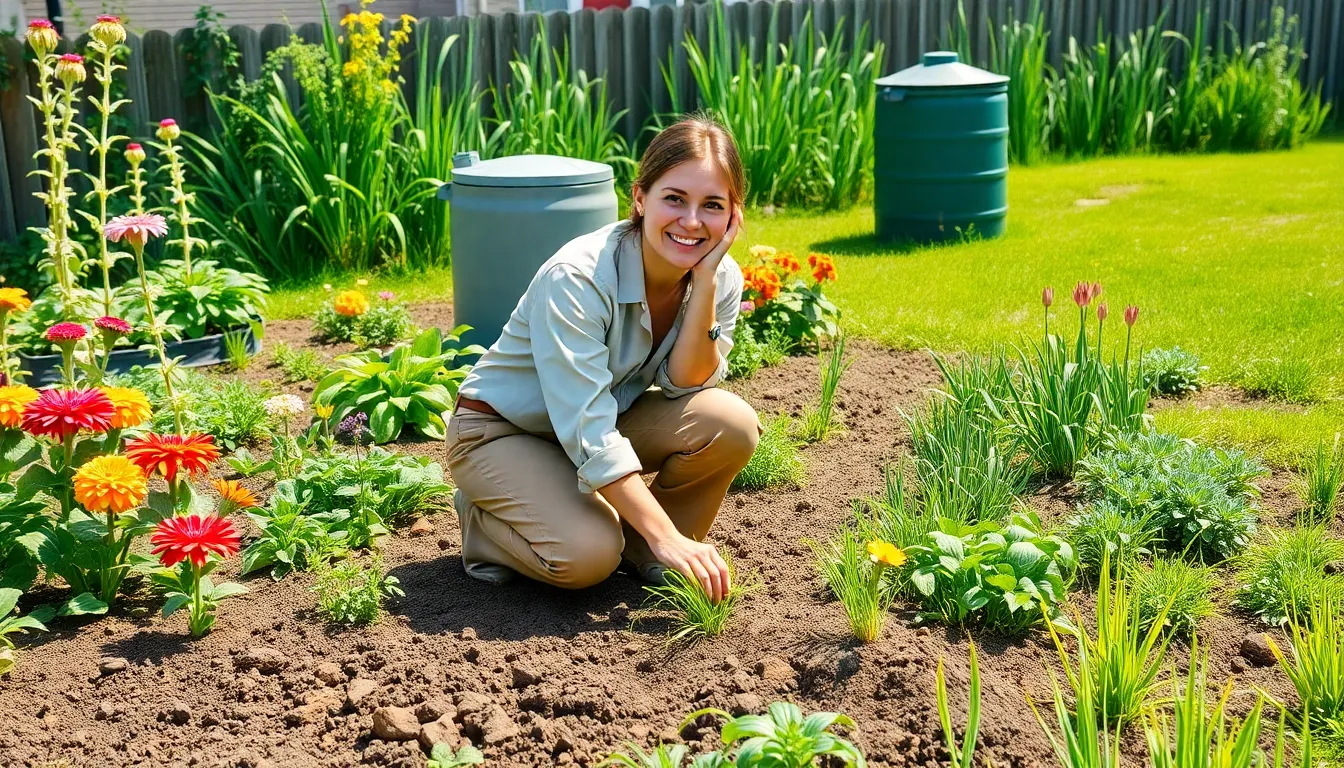Ever thought about turning your backyard into an eco-friendly paradise? Sustainable backyard gardening isn’t just a trend: it’s a movement encouraging everyone to be more in tune with nature. Imagine digging your hands into the rich, organic soil while sipping on your favorite beverage, all while knowing you’re doing your part for the planet. It’s like being a superhero for Mother Earth. Read on to discover how sustainable gardening principles can yield a flourishing space that benefits you and the environment alike.
Sustainable Backyard Gardening

Sustainable gardening revolves around nurturing our environment while cultivating attractive and productive gardens. The primary principle is to create a self-sustaining ecosystem that minimizes external inputs like synthetic fertilizers and pesticides. This involves understanding local ecosystems and utilizing natural resources wisely.
At its core, sustainable gardening promotes practices that protect biodiversity, enhance food security, and embrace practices that can be maintained for generations. Among these principles are:
- Reducing waste by composting, recycling, and repurposing materials.
- Fostering healthy soil, which is fundamental to any successful garden.
- Encouraging chemical-free gardening to protect beneficial insects and wildlife.
By integrating these principles, gardeners can not only improve their immediate environment but also contribute positively to the larger ecological community.
Benefits of Sustainable Backyard Gardening
The perks of sustainable backyard gardening stretch far beyond the garden gate. For starters, growing your own fruits and vegetables is a surefire way to ensure freshness and superior taste. There’s nothing quite like picking a ripe tomato right off the vine.
Beyond that, sustainable gardening fosters improved mental health. Tending to plants offers a wonderful stress relief and provides a sense of accomplishment. Gardening is also a fantastic form of exercise, which can lead to increased physical health.
Besides, sustainable practices help conserve water and soil health, promoting a more resilient garden. These benefits extend to communities, enhancing urban biodiversity and fostering a cultural shift toward environmental consciousness. Talk about a win-win.
Essential Practices for Sustainable Gardening
Implementing essential gardening practices is crucial for a flourishing sustainable garden. Here’s a breakdown of key practices to embrace:
Composting
Composting transforms kitchen scraps and yard waste into nutrient-rich organic matter, reducing landfill waste and enhancing soil quality.
Crop Rotation
This practice helps control pests and diseases while improving soil health by alternating plants in different seasons.
Companion Planting
Certain plants can benefit each other when grown together: for example, planting marigolds alongside vegetables can deter harmful pests.
Mulching
Applying organic mulch can help retain soil moisture, suppress weeds, and enhance the look of garden beds.
Adopting these methods instills a richer garden environment while significantly lessening environmental impact.
Choosing the Right Plants for Your Garden
Selecting the right plants is crucial for a successful sustainable garden. Opting for native plants means choosing species better adapted to local conditions, requiring less water and fewer inputs. This not only simplifies maintenance but also supports local wildlife.
Consider the following factors when choosing plants:
- Hardiness Zone: Ensure plants are suited for your climate.
- Pest Resistance: Select varieties less susceptible to pests to reduce chemical use.
- Pollinator-Friendly Options: Choose plants that attract bees and butterflies, promoting biodiversity.
Eventually, the right plants will thrive, making the garden sustainable, vibrant, and low maintenance.
Soil Health and Composting Techniques
Healthy soil is the foundation of any thriving garden. It’s essential to understand how to improve soil quality to ensure optimal growth.
Soil Testing
Conducting soil tests can reveal pH levels and nutrient content, allowing gardeners to amend soil correctly.
Adding Organic Matter
Incorporating well-rotted manure or green compost enhances soil structure and increases microbiological activity.
Composting Techniques
Setting up a backyard compost system can be as simple as a pile or as structured as a compost bin. Regularly turn the compost to aerate it, speeding up the decomposition process.
These techniques contribute to building nutrient-rich soil that supports healthy plants and reduces the need for chemical fertilizers.
Water Conservation Strategies in Gardening
Watering wisely is essential for sustainable gardening. With climate change affecting water availability, implementing water conservation strategies can help gardeners maintain healthy plants while conserving this precious resource.
- Drip Irrigation: This method delivers water directly to the plant roots, minimizing waste and evaporation.
- Rain Barrels: Collecting rainwater provides an eco-friendly source for garden irrigation.
- Drought-Resistant Plants: Selecting plants that require less water is an effective way to maintain a sustainable garden.
Creating a Biodiverse Garden
A biodiverse garden is rich in plant and animal life, eventually creating a balanced ecosystem. Here’s how to achieve this:
- Plant Diversity: Include various plants to attract a wider range of beneficial insects and wildlife.
- Habitat Creation: Add structures like birdhouses, bee hotels, and ponds to enhance wildlife habitats.
- Natural Pest Control: Encourage beneficial insects such as ladybugs and hoverflies to manage pests naturally.
By fostering biodiversity, gardens become more resilient and self-sustaining.

